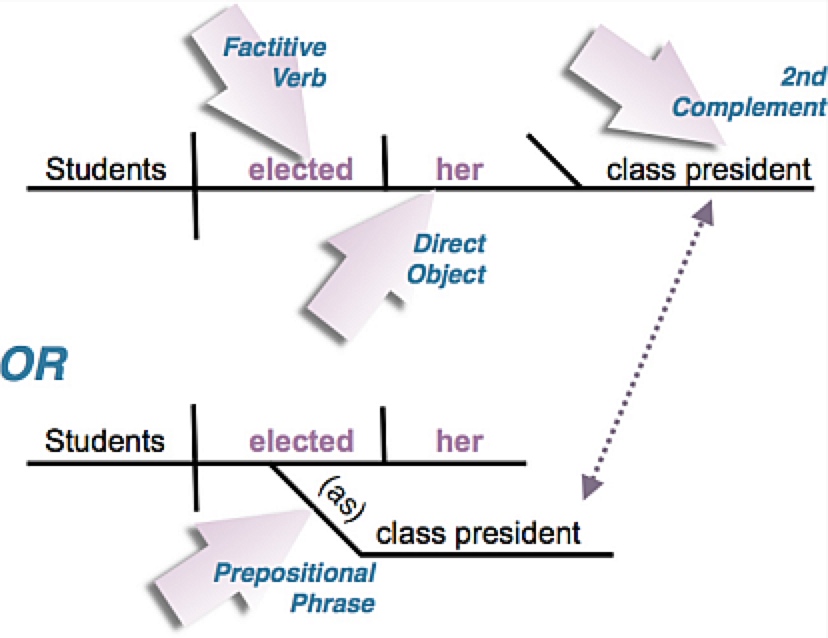
Karl J Sherlock
Associate Professor, English
Email: karl.sherlock@gcccd.edu
Phone: 619-644-7871

factitive
New Latin factitivus, irregular from Latin factus (past participle of facere to make, do) + -ivus -ive
Take some time to consider the possible variations on this question, such as "What were they appointed as?" or "What was that selected to be?" In all answers to such questions, the factitive verbs are transitive and make or designate one thing or person as another. Consequently, factitive verbs seem to take two related objects: a direct object and an indirect object (a.k.a. second complement):
In this sentence, "our college" is the direct object and "the best" is the indirect object. In reality, the indirect object is the object of the preposition "as," which has been dropped in the same fashion as the preposition "to" is dropped from the indirect object of verbs like "give" that create the dative case. (See "Transitive Verbs." However, you can always add the preposition back into the construction if you are ever confused about what type of verb it is:
(Beware: The word "as" has different meanings and different parts of speech, including adverb, conjunction, and even pronoun.) The factitive verbs include:
They are diagrammed a little differently from other verbs in that they are somewhat like a combination of linking verbs and transitive verbs: the object complement is put on the same line as the object, and placed after a diagonal line slanting toward the direct object.
If you prefer, though, you can always diagram it by including the missing preposition "as," and by placing the complement where the object of that preposition would go:

Don't over-think factitive verbs, but if you want to ponder further what makes them so special, treat them as if they were a cross between a linking verb and a causative verb:
a verb that brings about another state of being, becoming, or appearance.
a verb that brings about another action
a verb that makes something animate or inanimate become something else.
Karl J Sherlock
Associate Professor, English
Email: karl.sherlock@gcccd.edu
Phone: 619-644-7871

8800 Grossmont College Drive
El Cajon, California 92020
619-644-7000
Accessibility
Social Media Accounts